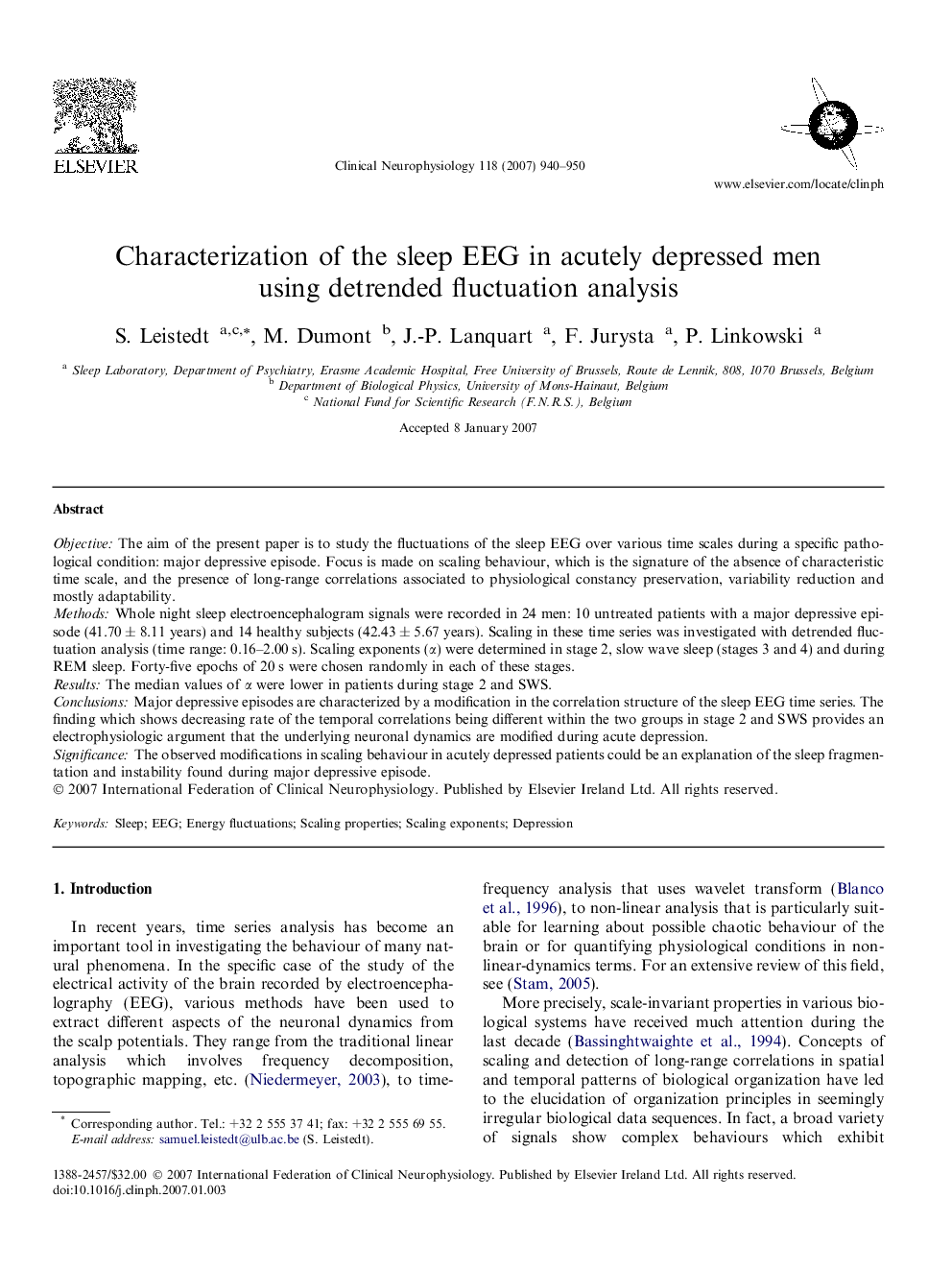| Article ID | Journal | Published Year | Pages | File Type |
|---|---|---|---|---|
| 3047925 | Clinical Neurophysiology | 2007 | 11 Pages |
ObjectiveThe aim of the present paper is to study the fluctuations of the sleep EEG over various time scales during a specific pathological condition: major depressive episode. Focus is made on scaling behaviour, which is the signature of the absence of characteristic time scale, and the presence of long-range correlations associated to physiological constancy preservation, variability reduction and mostly adaptability.MethodsWhole night sleep electroencephalogram signals were recorded in 24 men: 10 untreated patients with a major depressive episode (41.70 ± 8.11 years) and 14 healthy subjects (42.43 ± 5.67 years). Scaling in these time series was investigated with detrended fluctuation analysis (time range: 0.16–2.00 s). Scaling exponents (α) were determined in stage 2, slow wave sleep (stages 3 and 4) and during REM sleep. Forty-five epochs of 20 s were chosen randomly in each of these stages.ResultsThe median values of α were lower in patients during stage 2 and SWS.ConclusionsMajor depressive episodes are characterized by a modification in the correlation structure of the sleep EEG time series. The finding which shows decreasing rate of the temporal correlations being different within the two groups in stage 2 and SWS provides an electrophysiologic argument that the underlying neuronal dynamics are modified during acute depression.SignificanceThe observed modifications in scaling behaviour in acutely depressed patients could be an explanation of the sleep fragmentation and instability found during major depressive episode.
